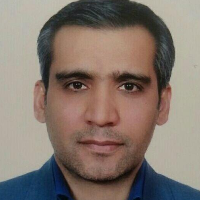The Role of Technology Acceptance in Predicting Knowledge Sharing Among Students of Shiraz University of Medical Sciences
Author(s):
Article Type:
Research/Original Article (دارای رتبه معتبر)
Abstract:
Background
Today knowledge and information sharing by means of new technologies among university students and faculty members is important. Therefore, it is necessary to identify factors which influence knowledge sharing among university students.
Objectives
The main purpose of the present study was to examine the role of technology acceptance in improving knowledge sharing among students of Shiraz University of Medical Sciences, Shiraz, Iran.
Methods
In this applied research, a descriptive-analytic cross-sectional study was used. The study sample consisted of 228 medical students from Shiraz University of Medical Sciences. The data collection tools included two questionnaires, i.e., technology acceptance (Toe, 2011) and knowledge sharing (Van den Hoof & Van Weenen, 2004) questionnaires. The validity of these scales in terms of form and content was examined by experts in the field, and their reliability was confirmed by measuring Cronbach’s alpha coefficients. The reliability of technology acceptance and knowledge sharing questionnaires was 0.83 and 0.72, respectively. After confirming the validity and reliability of the questionnaires, they were distributed among the participants. Finally, the collected data were analyzed using one-sample t-test and Pearson’s correlation coefficient test in SPSS and structural equation modeling (SEM) in Lisrel 8.8.
Results
The results of one-sample t-test showed that the levels of technology acceptance and knowledge sharing were higher than the acceptable level among medical students. In addition, the results of Pearson’s correlation test indicated a significant positive relationship between technology acceptance (and its components) and knowledge sharing. In addition, SEM showed that technology acceptance is a significant positive predictor of knowledge sharing among students. Among different components of technology acceptance, only perceived usefulness (PU) and facilitating conditions (FC) were significant predictors of knowledge collecting (P = 0.37 and 0.28, respectively). Nevertheless, other components of technology acceptance could not predict different types of knowledge sharing.
Conclusions
The present results showed that PU and FC could predict the knowledge sharing of students more than other components. To improve knowledge sharing in the context of higher medical education, different aspects of technology acceptance need to be evaluated and expanded; accordingly, establishment of new educational policies is necessary.Keywords:
Language:
English
Published:
Strides in Development of Medical Education, Volume:15 Issue: 1, Summer 2018
Page:
21
magiran.com/p1933888
دانلود و مطالعه متن این مقاله با یکی از روشهای زیر امکان پذیر است:
اشتراک شخصی
با عضویت و پرداخت آنلاین حق اشتراک یکساله به مبلغ 1,390,000ريال میتوانید 70 عنوان مطلب دانلود کنید!
اشتراک سازمانی
به کتابخانه دانشگاه یا محل کار خود پیشنهاد کنید تا اشتراک سازمانی این پایگاه را برای دسترسی نامحدود همه کاربران به متن مطالب تهیه نمایند!
توجه!
- حق عضویت دریافتی صرف حمایت از نشریات عضو و نگهداری، تکمیل و توسعه مگیران میشود.
- پرداخت حق اشتراک و دانلود مقالات اجازه بازنشر آن در سایر رسانههای چاپی و دیجیتال را به کاربر نمیدهد.
In order to view content subscription is required
Personal subscription
Subscribe magiran.com for 70 € euros via PayPal and download 70 articles during a year.
Organization subscription
Please contact us to subscribe your university or library for unlimited access!


